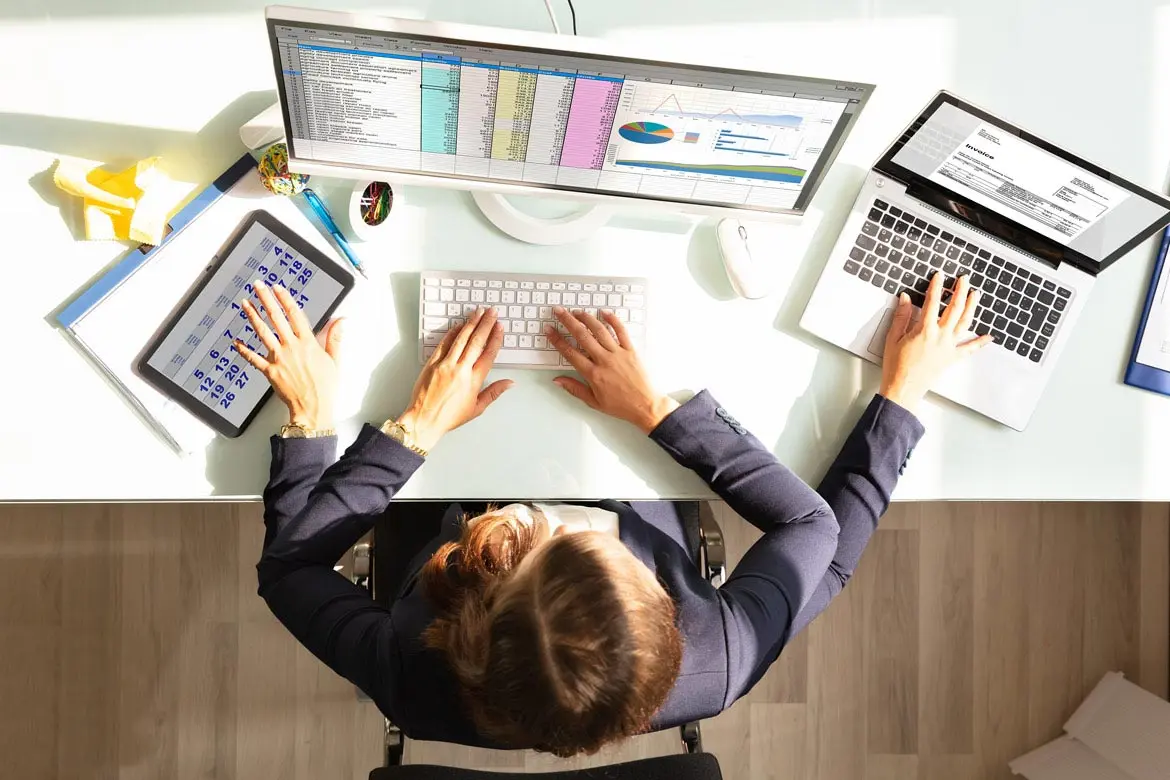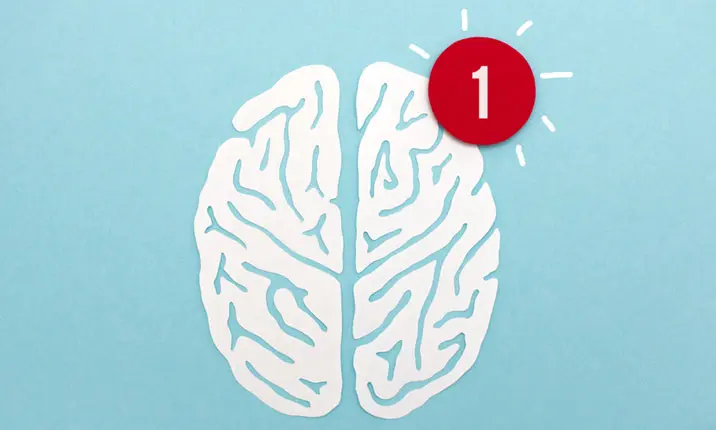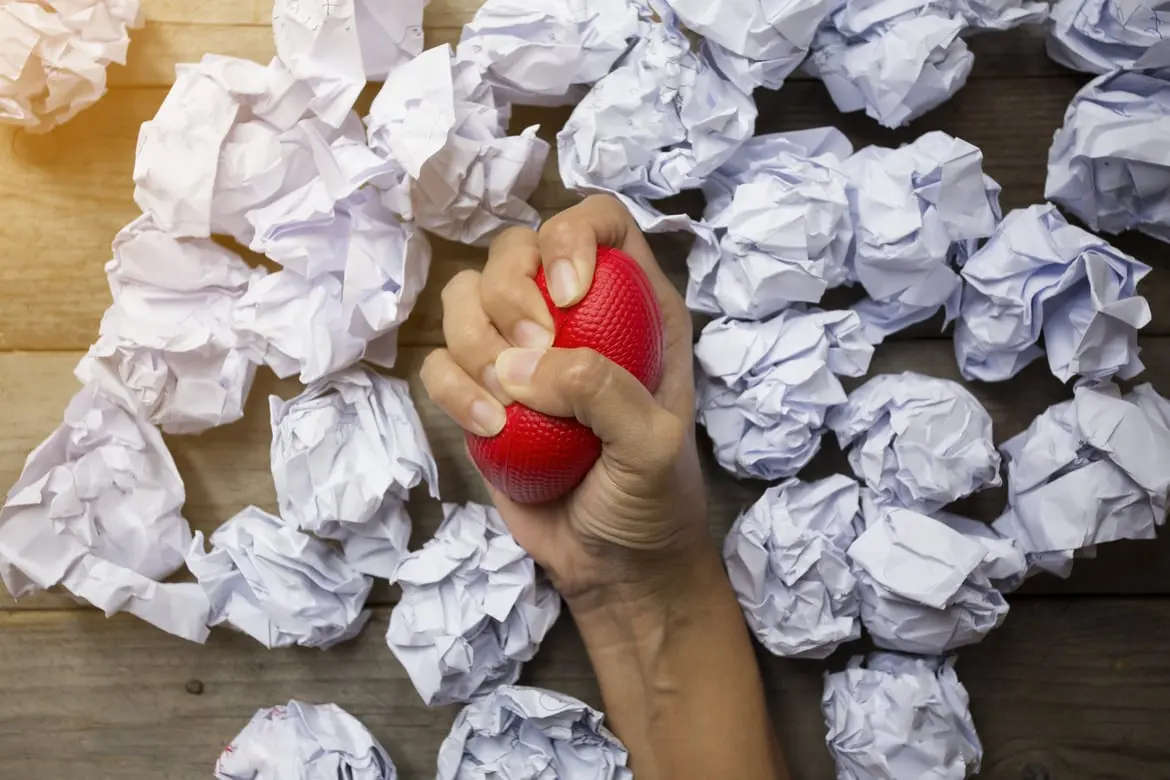-
-
Featured Care Areas


Source: Shutterstock
10 Reasons Why Multitasking May Not Work
Last updated: Thursday, May 9, 2019 | 6 min reading time
If you think multitasking is an efficient way to get more done, think again. Human brains are not designed to multitask.
You are walking down the street and decide to send a text to a work colleague about a task you've just remembered, and a text conversation ensues. You consider yourself a good multitasker, so you think you've got it all handled, but in reality, you are much less aware of your surroundings and the details of the conversation than you think.
Yes, you can do 2 things at once, such as walk and talk, or eat and read, but what you can't do is focus on 2 things at once. Your attention only bounces back and forth. If 1 of your tasks requires absolutely no conscious thought, only then is it possible to do something else at the same time, like breathing, for example. You may think walking is subconscious, but you still need to be mindful of passers-by and traffic light signals, and traffic for that matter.
In the process of your brain switching between tasks, you are taking longer and making more mistakes on both things than if you were doing them 1 at a time, leading to a range of potential negative impacts.
Here are 10 reasons why you probably shouldn't multitask.
1. The limitations of the brain don't allow for true multitasking
Our brain isn't designed to do 2 things at once, and that has to do with its limited executive control processes. The prefrontal cortex of our brain is responsible for most of our control and decision-making. So, what happens when another goal enters the mix? Psychologists say executive control processes have 2 distinct phases:
Goal shifting
In the goal shifting phase, our brain concentrates on doing Task A instead of Task B.
Rule activation
In the rule activation phase, our brain focuses on turning off the rules it needs for the first task and turning on the rules for the next one.
For example, in the instance of texting while studying, our brain may be working on the mental rules and skills required for watching an informative video, but when we switch to looking at our phone, our brain has to shift goals from studying to texting, which is when it would have to recall the rules for writing text.
Going through these stages helps our brain shift between tasks without us realising it but it also makes our processes feel like it’s more efficient than it actually is.
2. It dampens your ability to learn
Each small shift in attention has a cognitive cost. Each time we switch from task to task we are draining precious brain resources and energy. Humans have a very limited capacity for simultaneous thought, and dividing our attention interrupts the flow of information in the mind at any single moment. Since quality focus is required for learning, multitasking hinders us from interpreting and retaining information effectively.
3. Time is wasted, not saved
When we distractedly attempt to complete small tasks while trying to complete a complex one, we'll soon see how they actually eat up more of our time rather than save it. The mind has to reset after a shift in task. This takes time, even if it's just a few tenths of a second. It doesn't seem long, but those delays add up. Imagine the amount of time that goes to waste from repetitive interruptions throughout a day. Experts estimate we can waste as much as 40% of our productive time from multitasking.
4. You will make more mistakes
Making more mistakes is a logical consequence of the lack of focus in multitasking. When doing several things at once, our mind is divided between them so it's only natural that mistakes multiply. The mental cross-firing and overlap between tasks can cause us to mistakenly use an action for Task A which was supposed to be for Task B.
5. It can contribute to memory loss
Quickly shifting from one task to another impacts short-term memory as the brain doesn't have time to fully register and retain incoming information. The impact is always negative and becomes increasingly apparent as we get older. Just because you can handle your tasks right now doesn't mean that in 5 or 10 years, you'll be able to go on about your life in the same way. It's always better to cultivate healthy habits early on.
6. It may weaken your creativity
When you try to multitask, creativity and innovation are hindered. Extended concentration is necessary for innovative thinking. When you try to multitask, you typically don't focus long enough to come up with original, complex thoughts because you're constantly switching back and forth. The creative mind is not optimised when we are constantly switching between tasks, and coming up with truly innovative ideas may be difficult.
7. Multitasking can be addictive
A dopamine-addiction feedback loop can be created when we are constantly multitasking. The brain is rewarded for going off track when it receives external stimulation. The same regions of the brain that we need to stay focused on a task are also easily distracted. Each time we multitask – our brain is trained to lose focus and get distracted. Once this happens, it becomes very difficult to break the cycle. Instead of reaping the big rewards that come from sustained, focused effort, we instead reap empty rewards from completing hundreds of small mundane tasks.
8. Too many tasks may burn you out
Multitasking is taxing on the brain and drains mental energy. Forcing the brain to shift attention from one activity to another causes the prefrontal cortex to use up more energy. The kind of rapid, continual shifting causes the brain to burn through energy so quickly that we feel drained even after a short period of time. If you've ever wondered why you constantly feel tired, even after you seemingly haven’t done anything, this could be a reason why.
9. It can cause anxiety
A major downside of multitasking is that feeling of anxiety which affects people who consistently divide their attention. The adverse effects of interrupted work are not only physical and mental, but physiological as well. Multitasking increases our brain's production of cortisol, a hormone that induces feelings of stress. Anxiety slowly builds up with enough stress and mental fatigue, causing the brain to be overstimulated and short-circuit.
10. Multitasking can be fatal
Although switching between tasks takes less than a second, that's all the time needed for an accident to occur. When driving or operating large, dangerous equipment, it is imperative to stay focused on what you are doing. In Singapore, failing to keep a proper lookout has been the leading cause of road accidents over the last 5 years. In 2016, it resulted in 2,729 accidents and 41 fatalities on the road.
In summary, multitasking, in many surprising ways, may do more harm than good for your brain and overall health.
If you're struggling to complete your daily tasks, try the 'time-blocking' method – where you assign a specific amount of time to spend on each task – to help you better manage your schedule and keep you focused on every job.
Causes of Road Accidents - Causes of Accidents by Severity of Injury Sustained. (2017, June 5) Retrieved from https://data.gov.sg/dataset/causes-of-road-accidents-causes-of-accidents-by-severity-of-injury-sustained?view_id=e80588ff-310c-4199-93bf-e6479e160634&resource_id=d68321b6-c438-425d-b9f4-d5777eee9e77
Levitin, D J. (2018, March 22) Why the modern world is bad for your brain. Retrieved from https://www.theguardian.com/science/2015/jan/18/modern-world-bad-for-brain-daniel-j-levitin-organized-mind-information-overload
Miller, E. (2016, December 8) Here’s Why You Shouldn't Multitask, According to an MIT Neuroscientist. Retrieved from http://fortune.com/2016/12/07/why-you-shouldnt-multitask/
Multitasking: Switching costs. (2006, March 20) Retrieved from https://www.apa.org/research/action/multitask
Multitasking Overloads the Brain. (2017, April 28) Retrieved from https://neurosciencenews.com/multitasking-brain-overload-6531/
Robinson, J. (2012, November 20) The Truth About Multitasking: How Your Brain Processes Information. Retrieved from https://www.entrepreneur.com/article/224943
Levitin, D J. (2018, March 22) Why the modern world is bad for your brain. Retrieved from https://www.theguardian.com/science/2015/jan/18/modern-world-bad-for-brain-daniel-j-levitin-organized-mind-information-overload
Miller, E. (2016, December 8) Here’s Why You Shouldn't Multitask, According to an MIT Neuroscientist. Retrieved from http://fortune.com/2016/12/07/why-you-shouldnt-multitask/
Multitasking: Switching costs. (2006, March 20) Retrieved from https://www.apa.org/research/action/multitask
Multitasking Overloads the Brain. (2017, April 28) Retrieved from https://neurosciencenews.com/multitasking-brain-overload-6531/
Robinson, J. (2012, November 20) The Truth About Multitasking: How Your Brain Processes Information. Retrieved from https://www.entrepreneur.com/article/224943












